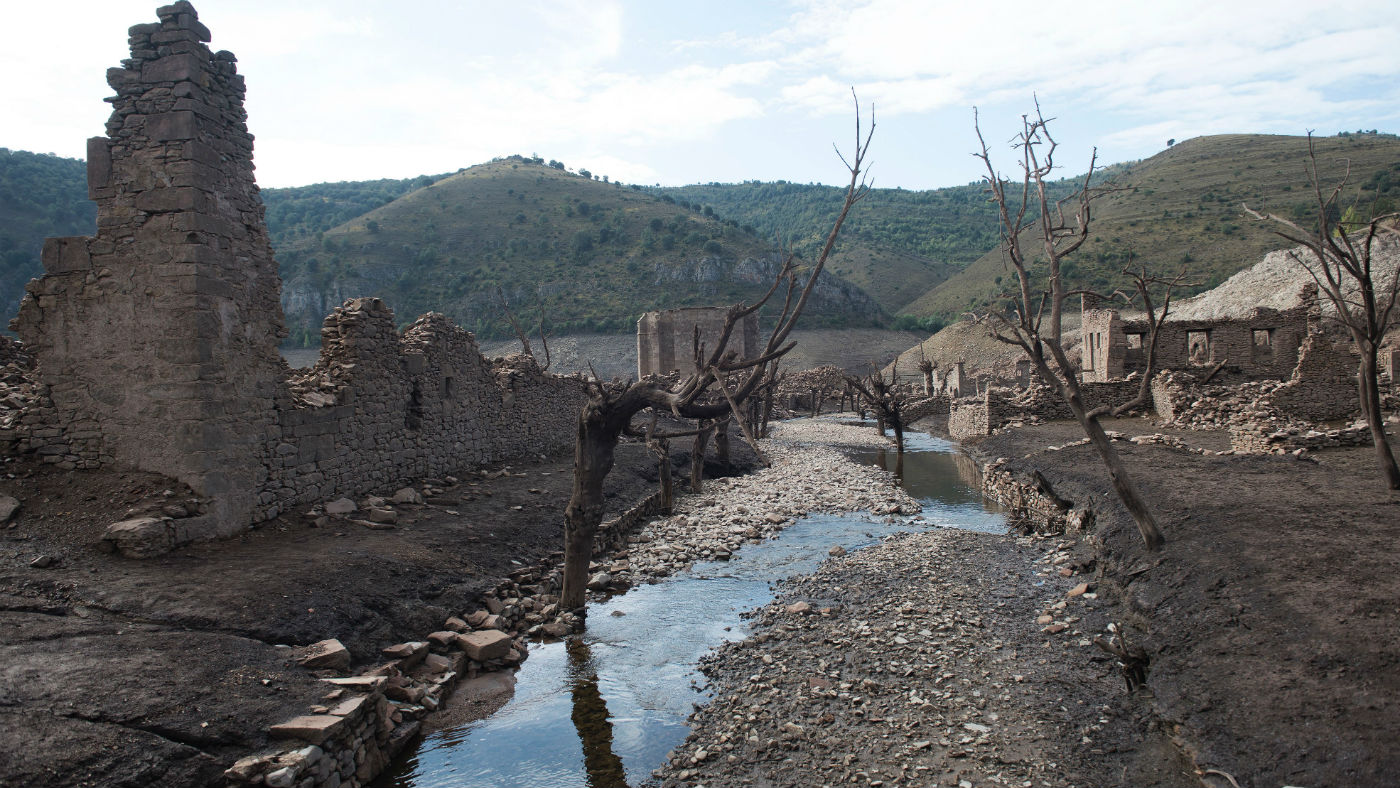2017 to be one of the hottest years on record
World Meteorological Organisation warns recent ‘extraordinary’ weather events are first result of man-made climate change

A free daily email with the biggest news stories of the day – and the best features from TheWeek.com
You are now subscribed
Your newsletter sign-up was successful
This will be one of the hottest years on record, according to provisional figures from the World Meteorological Organisation (WMO) which has said “extraordinary” weather events in 2017 are the direct result of climate change.
Opening this year’s UN climate talks in Bonn, researchers from the WMO presented their annual State of Global Climate report, which found that 2017 is “very likely” to be in the top three warmest years on record and the hottest excluding the years affected by the El Nino phenomenon.
Data for January to September suggests average global temperatures this year were 1.1C above the pre-industrial figure. This is dangerously close to the 1.5C limit seen as crucial for safeguarding island nations. A separate greenhouse gases study released last week found concentration of CO2 in the atmosphere was also at a record high.
The Week
Escape your echo chamber. Get the facts behind the news, plus analysis from multiple perspectives.

Sign up for The Week's Free Newsletters
From our morning news briefing to a weekly Good News Newsletter, get the best of The Week delivered directly to your inbox.
From our morning news briefing to a weekly Good News Newsletter, get the best of The Week delivered directly to your inbox.
The WMO Secretary-General Petteri Taalas told the BBC that this year has seen “extraordinary weather, including temperatures topping 50C in Asia, record-breaking hurricanes in rapid succession in the Caribbean and Atlantic, reaching as far as Ireland, devastating monsoon flooding affecting many millions of people and a relentless drought in East Africa”. He said many weather events “bear the tell-tale sign of climate change caused by increased greenhouse gas concentrations from human activities”.
With the number of cyclones and category four hurricanes at its highest recorded rate - and droughts and heatwaves affecting many parts of Africa and South America this year - the WMO report “is likely to reinforce a sense of urgency among many delegates” at the UN conference underway in Germany, says the BBC.
The COP23 talks, a follow-up to the landmark Paris agreement of 2015, will focus on a new process by which countries’ pledges to cut greenhouse gas emissions can be toughened, in line with scientific advice.
A free daily email with the biggest news stories of the day – and the best features from TheWeek.com
-
 Local elections 2026: where are they and who is expected to win?
Local elections 2026: where are they and who is expected to win?The Explainer Labour is braced for heavy losses and U-turn on postponing some council elections hasn’t helped the party’s prospects
-
 6 of the world’s most accessible destinations
6 of the world’s most accessible destinationsThe Week Recommends Experience all of Berlin, Singapore and Sydney
-
 How the FCC’s ‘equal time’ rule works
How the FCC’s ‘equal time’ rule worksIn the Spotlight The law is at the heart of the Colbert-CBS conflict
-
 The plan to wall off the ‘Doomsday’ glacier
The plan to wall off the ‘Doomsday’ glacierUnder the Radar Massive barrier could ‘slow the rate of ice loss’ from Thwaites Glacier, whose total collapse would have devastating consequences
-
 Can the UK take any more rain?
Can the UK take any more rain?Today’s Big Question An Atlantic jet stream is ‘stuck’ over British skies, leading to ‘biblical’ downpours and more than 40 consecutive days of rain in some areas
-
 As temperatures rise, US incomes fall
As temperatures rise, US incomes fallUnder the radar Elevated temperatures are capable of affecting the entire economy
-
 The world is entering an ‘era of water bankruptcy’
The world is entering an ‘era of water bankruptcy’The explainer Water might soon be more valuable than gold
-
 Climate change could lead to a reptile ‘sexpocalypse’
Climate change could lead to a reptile ‘sexpocalypse’Under the radar The gender gap has hit the animal kingdom
-
 The former largest iceberg is turning blue. It’s a bad sign.
The former largest iceberg is turning blue. It’s a bad sign.Under the radar It is quickly melting away
-
 How drones detected a deadly threat to Arctic whales
How drones detected a deadly threat to Arctic whalesUnder the radar Monitoring the sea in the air
-
 ‘Jumping genes’: how polar bears are rewiring their DNA to survive the warming Arctic
‘Jumping genes’: how polar bears are rewiring their DNA to survive the warming ArcticUnder the radar The species is adapting to warmer temperatures